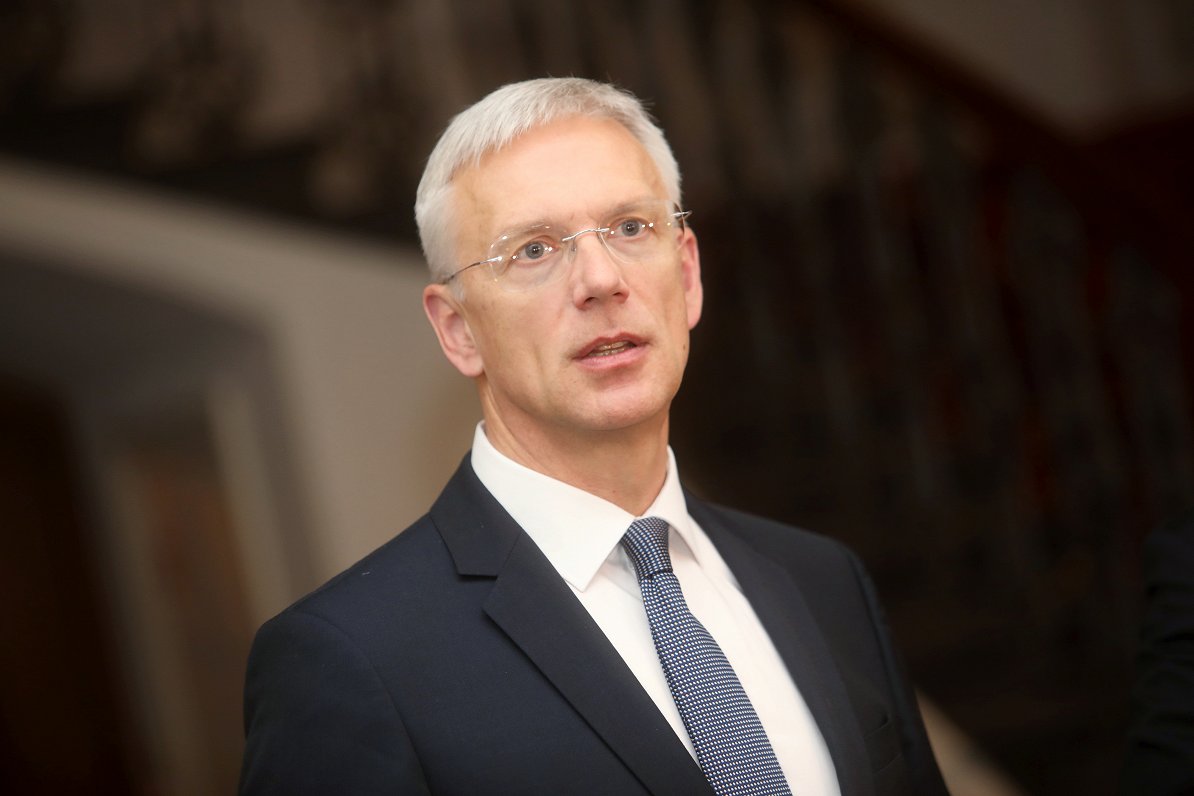The party is to offer cooperation agreements to the other parties, with boosting financial security, improving access to healthcare, implementing the regional reform and liquidating the mandatory purchase component set as the new government's top priorities.
New Unity considers a right-of-center majority government as the most viable government possible right now and wants to divide ministerial seats evenly. Party MP Ojārs Ēriks Kalniņš told LTV that New Unity want to head the Finance Ministry and the Foreign Ministry.
The party also wants to ensure that a consensus across the coalition is necessary when making decisions on budget, language and Euro-Atlantic matters.
Another suggestion they make is to set up a Development Committee that would evaluate new initiatives and reform proposals. The committee would include all coalition parties.
Following a meeting with New Unity, the KPV LV party said it would like to lead the Environment Ministry and the Economics Ministry, leaving the Finance Ministry - traditionally overseen by the PM's party - to New Unity.
KPV LV board member Ralfs Nemiro told the press that his party does not exclude the possibility of cooperating with the Greens and Farmers Union in the new government.
Other parties later on December 14 have also named the ministries they would prefer to lead. The New Conservative Party said it'd like to lead the Interior Ministry and Education Ministry, or the Transport Ministry and the Environment Ministry.
Meanwhile the Greens and Farmers Union would prefer the Agriculture, Defense, Transport and the Environmental Ministry. The Development/For! party would like to add the Health Ministry, the Defense Ministry and the Finance Ministry to their portfolio, while the National Alliance Party wants to keep the Environmental Ministry and the Culture Ministry under its control.
Following talks with all the parties except Harmony, Kariņš - who has not received a formal nomination for PM yet - said that he does not yet see a "spirit of compromise" necessary to set up a new government.
"I saw a readiness to talk and perhaps work in a government led by me. It's possible we can get a majority," he said.
He said talks will continue and that he will present the parties with the possible cabinet make-up on Monday.
However, he stressed that parties had to consider what they could achieve by mutual compromise rather than thinking only of their own interests.
"If we only think about 'I' and 'me', we will not get anywhere," he said, adding that the real "work" on forming a government could only begin after a nomination from the president.
He also pointed out that even on issues where there might initially appear to be agreement, there were often differences, using local government reform as an example. All parties were committed to the need for local administration reform, but that is like saying everyone agrees on the need for a drink: "one means a drink of water, one means a drink of coffee and one means a drink of šnabis," (vodka) Kariņš told reporters.
One stumbling stone in the coalition talks is that the New Conservative Party has continuously ruled out cooperating with the Greens and Farmers Union. Theoretically, a slim majority in the Saeima could be acquired without either of the parties and without involving Harmony, a pariah to all the other parties that have made it into the Latvian parliament.
The New Unity is taking on the responsibility of forming a new cabinet following the failure of first Jānis Bordāns of the New Conservative Party and then Aldis Gobzems of KPV LV to garner enough support to form a government following elections on October 6.
Kariņš, born in 1964, is currently serving as an MEP. He was born in the United States and moved to Latvia in the mid-1990s. He served as Economics Minister 2002-2004 and became an MEP in 2009.
Formerly the dominant force in recent government coalitions, New Unity saw its parliamentary representation reduced by two thirds in October's election. Nevertheless, with the rest of the Saeima seats distributed between numerous parties with fairly similar numbers of seats, Kariņš could take the role of honest broker between the competing interests.





























